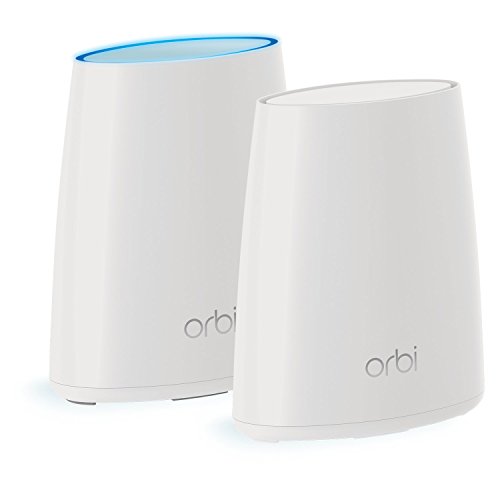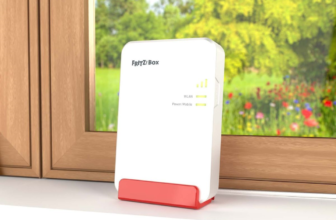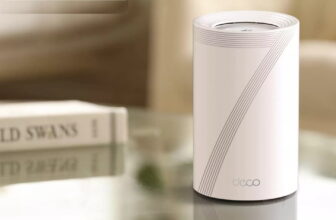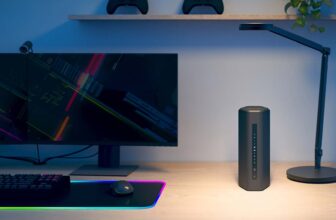Netgear Orbi RBK40 Review – Get Wi-Fi further, faster

Setup is easy and works well over long distances, but there are cheaper options. Read our Netgear Orbi RBK40 Review.
Mesh routers spread Wi-Fi better around your home, eliminating dead spots. When we tested Netgear’s version, Orbi, it gave excellent speeds, but it was too expensive. The RBK40 is a cheaper option, with two slightly smaller white plastic units lit up with blue LEDs, one of which replaces your existing Wi-Fi router while the other is positioned elsewhere in your home.
Table of Contents
[sc name=”amazon image”]
If your current router is a separate box cabled to your broadband provider’s modem, replacing it should be straightforward, except you’ll have a new Wi-Fi network with a different name and password. Creating just one network keeps tilings simple, automatically connecting your devices in the most efficient way, whether they need the old 2.4GHz or the newer 5GHz band. You can add a separate network for guests.
If you currently have a one-box modem/router, disabling the router part to add the Orbi may involve a little fiddling. Alternatively, you can bypass Orbi’s router by putting it into Access Point mode, and connect it to your existing router, much like BT’s rival Whole Home Wi-Fi.
Like other mesh routers, Orbi has a handy app you can use to set everything up, although if you don’t have an Apple or Android device to run this on you can do it from a PC. It guides you through configuring the system and tries to connect automatically to the internet – although with our BT Broadband line it gave up and we had to go into the advanced options to enter a username and password. It also dumped us out of the app to Netgear’s website to install an update, which was a little annoying. If you want to set up parental controls, you can do it via a separate app, Disney’s Circle.
In our tests, the RBK10 didn’t give us as fast connections as the original RBK50, but they were still as good as other decent routers with far less drop off further away. The three-box Tenda Nova was a bit taster within the house, but out in the back garden the RBK40 beat it.
Although the price of the RBK50 has dropped, the RBK40 is cheaper, making it better value than most rival options and well worth considering. If you have a decent existing router, though, BT’s Whole Home Wi Fi is even cheaper, and provides three dishes, giving you more scope to reach distant rooms.
SPECIFICATIONS
Two-router mesh network • Supports 802.11n (2.4GHz) and 802.11ac (5GHz) • Requires PC or Android 4.2 or iOS 9.0 or higher device for setup • 203x163x79mm • 748g

VERDICT
When you purchase through links on our site, I may earn an affiliate commission. Here’s how it works.
ALTERNATIVE
BT Whole Home Wi-Fi
If you currently have a 802.11ac router, this set of three dishes is still the best-value upgrade
HOW MANY BOXES DO YOU NEED?
The RBK40 comes with two identical units (like the original Orbi RBK50), but its backhaul connection (the network it uses itself to get wireless signals to and from the base, as opposed to the network it creates for you to connect to) uses two rather than four data streams. It’s recommended for smaller homes (up to 4,000 sq ft), compared with 5,000 sq ft for the original RBK50 two-pack. Whether it provides reliable reception in all parts of your home will depend on more factors, including layout and construction. One unit per storey is recommended, so if you have a basement or loft, consider a three-pack.
Here, though, the price difference compared with the BT Whole Home Wi-Fi three-pack is stark. You might not get quite the same speeds with BT’s dishes, but it’s a lot less money. The Orbi units have more Ethernet ports for wired devices, though, and you can even use an Ethernet backhaul if you’re able to run a cable.







